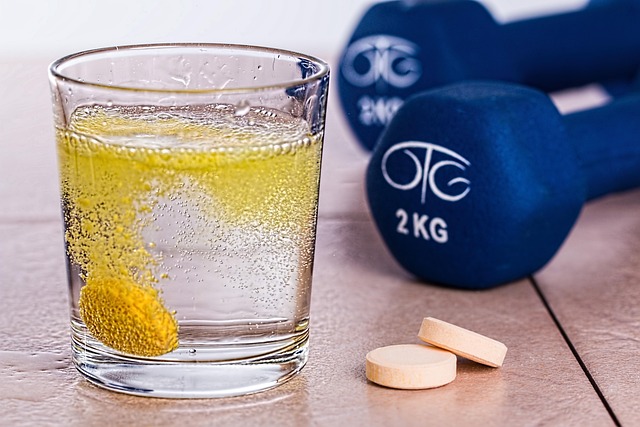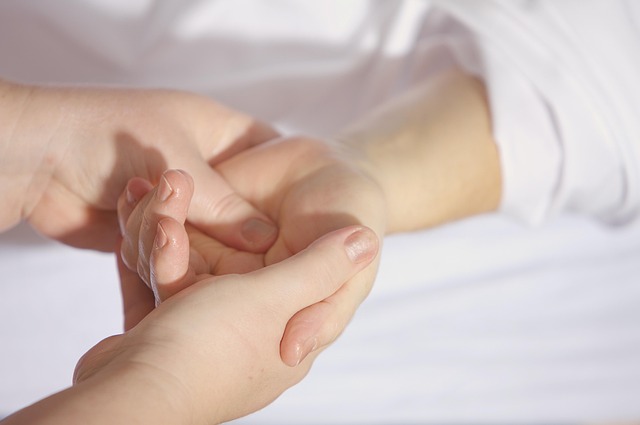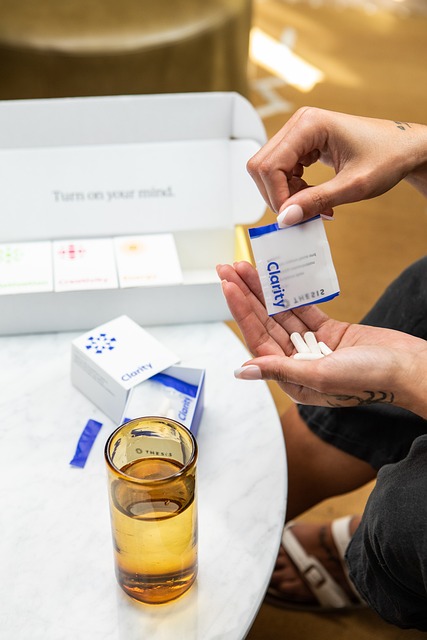Scar formation, while natural, can cause visible and functional impairments. Advanced non-invasive methods focus on stimulating skin regeneration without additional trauma. Topical treatments, light therapy, and mechanical devices are key to these solutions, encouraging healthier scar formation or breakdown of existing ones. Key topical components like antioxidants, hyaluronic acid, and peptides protect, hydrate, and promote collagen production for reduced scarring and improved texture. Fractional laser therapy and microneedling with RF energy offer minimal-invasive revision, while advanced topical treatments containing growth factors further enhance at-home care. Lifestyle modifications, including a nutrient-rich diet, hydration, quality sleep, stress management, regular exercise, sun protection, and gentle skincare routines, are crucial for optimal scar reduction and accelerated skin repair.
Discover the latest non-invasive advancements in scar reduction and skin healing, offering hope for those seeking improved appearance and texture. This comprehensive guide explores various techniques beyond traditional methods, focusing on advanced wound healing solutions. From understanding scar formation’s intricate process to discovering topical treatments and innovative technologies like laser therapy and platelet-rich plasma, you’ll gain insights into effective, minimally invasive approaches. Learn how lifestyle modifications complement these treatments for optimal results.
- Understanding Scar Formation and Non-Invasive Healing Processes
- Topical Treatments for Enhanced Skin Regeneration
- Advanced Technologies in Scar Revision: Minimally Invasive Approaches
- Lifestyle Modifications and Supportive Care for Optimal Results
Understanding Scar Formation and Non-Invasive Healing Processes

Scar formation is a natural part of the body’s healing process, where collagen and other proteins are laid down to repair damaged skin. However, in some cases, this process can result in scars that impact both appearance and functionality. Understanding how scars form is crucial when considering non-invasive scar reduction methods. Advanced wound healing solutions often focus on stimulating the body’s inherent regenerative capabilities without causing further trauma to the skin.
Non-invasive techniques aim to modulate the body’s response to injury, encouraging healthier scar formation or even breaking down existing scars. These processes may include topical treatments with specialized ingredients, light therapy, and mechanical devices that promote tissue regeneration. By harnessing these advanced wound healing solutions, individuals can achieve improved skin texture, reduced visibility of scars, and enhanced overall healing without resorting to invasive procedures.
Topical Treatments for Enhanced Skin Regeneration

Topical treatments play a crucial role in non-invasive scar reduction and skin healing, offering an array of advanced wound healing solutions. These treatments utilize active ingredients that stimulate fibroblast production, enhancing collagen synthesis and promoting skin cell regeneration. By accelerating the natural healing process, topical agents can significantly reduce the appearance of scars and improve skin texture.
From specialized serums to advanced creams, these products often incorporate powerful antioxidants, hyaluronic acid, and peptides. Antioxidants combat free radicals, protecting the skin from further damage. Hyaluronic acid, known for its hydrating properties, helps restore skin moisture levels, while peptides signal fibroblasts to produce more collagen. Together, these components create an optimal environment for enhanced skin regeneration, resulting in reduced scarring and a smoother, more even skin surface.
Advanced Technologies in Scar Revision: Minimally Invasive Approaches

Advanced Technologies in Scar Revision: Minimally Invasive Approaches
The field of dermatology has witnessed a significant evolution in scar revision techniques, offering hope to those seeking improved skin healing and reduced scarring. Among the most promising advancements are minimally invasive approaches that leverage cutting-edge technologies for advanced wound healing solutions. These innovative methods provide an alternative to traditional surgical scars revision, offering quicker recovery times and minimal discomfort.
One such technology is fractional laser therapy, which uses precise laser energy to stimulate collagen production and remodel scar tissue. Another game-changer is microneedling with radiofrequency (RF) energy, where tiny needles create micro-channels in the skin, encouraging cellular regeneration and enhancing product penetration. Additionally, advanced topical treatments containing growth factors and stem cell extracts are revolutionizing at-home care routines, promoting natural scar reduction over time. These minimally invasive options offer a promising path for effective scar management without the invasiveness of traditional surgery.
Lifestyle Modifications and Supportive Care for Optimal Results

In addition to medical treatments, implementing lifestyle modifications and supportive care strategies can significantly enhance the effectiveness of non-invasive scar reduction and skin healing methods. Diet plays a crucial role; incorporating nutrient-rich foods like antioxidants, vitamins C and E, zinc, and omega-3 fatty acids supports collagen production and overall skin health. Staying hydrated, getting adequate sleep, and managing stress levels are also essential for optimal results. Regular exercise improves circulation, fostering an environment conducive to advanced wound healing solutions.
Furthermore, protective measures such as avoiding excessive sun exposure and wearing protective clothing can prevent further damage and promote healthier skin regrowth. Incorporating gentle skincare routines and avoiding harsh products minimizes irritation and supports the healing process. Remember that consistency in these practices is key; combining these lifestyle modifications with chosen non-invasive treatments will yield the best outcomes for scar reduction and accelerated skin repair.
In conclusion, non-invasive scar reduction techniques offer promising avenues for improved skin healing and restoration. From topical treatments stimulating collagen production to advanced technologies providing precise adjustments, various options cater to different needs. Integrating these methods with lifestyle modifications ensures optimal results in the pursuit of advanced wound healing solutions. By understanding scar formation and leveraging modern approaches, individuals can achieve smoother, healthier skin.
